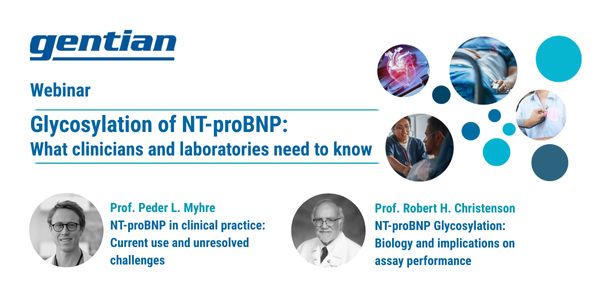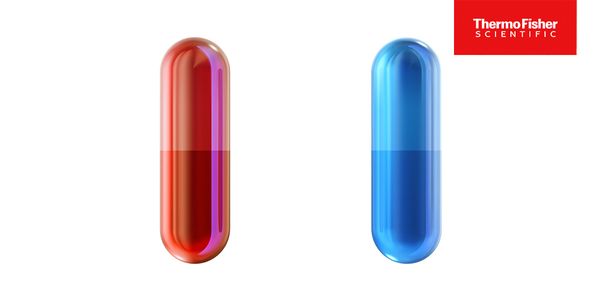Clinical Chemistry
Clinical Chemistry: Clinical chemistry uses chemical processes to measure levels of chemical components in body fluids. The most common specimens tested in clinical chemistry are blood and urine. Many different tests exist to test for almost any type of chemical component in blood or urine. Components may include blood glucose, electrolytes, enzymes, hormones, lipids (fats), other metabolic substances, and proteins.
-
FEB 25, 2026 | 6:00 AMNT-proBNP is a cornerstone biomarker in the diagnosis and management of heart failure. Despite its widespread use, important biological and analytical challenges remain. One of the most sign...Speaker: Peder L. Myhre, MD, PhD, FESC, FHFA , Robert H. Christenson, PhD, DABCC, FADLM, FACCSponsored By: Gentian DiagnosticsExplore the evolution, methods, and limitations of mixing studies in detecting factor deficiencies and lupus anticoagulants in coagulation testing....Speaker: Morayma Reyes-Gil, MD
Learn best practices for monitoring unfractionated heparin with aPTT, validating therapeutic ranges, and ensuring safe, effective anticoagulation....
Speaker:
Kim Kelly
Learn how to manage clinical coagulation labs with expert guidance on reagent validation, CAP checklist compliance, and aPTT and factor sensitivity testing...
Speaker:
Cate Hoesl, BS, MT(ASCP)
Explore D-Dimer testing in VTE diagnosis-learn clinical uses, assay methods, and key factors affecting test accuracy and interpretation....
Speaker:
Olajumoke Oladipo, MBBS, DABCC
APR 23, 2025 | 9:00 AM
C.E. CREDITS
In this presentation, participants will explore the dynamic evolution of clinical chemistry testing and its expanding role in delivering high-quality patient care within an evolving healthca...
Explore routine coagulation assays-PT, APTT, and fibrinogen-covering methods, factors, and clinical utility in patient care...
Speaker:
Malissa S Norfolk, MBA, PMP, MLS(ASCP)ᶜᵐSHᶜᵐ
APR 21, 2025 | 7:00 AM
C.E. CREDITS
The burden of antimicrobial resistance (AMR) has been acknowledged worldwide by leading healtDr. Marvin Berman will discuss how Sigma Metrics enables you to build sustained operational excel...
FEB 25, 2025 | 1:00 PM
C.E. CREDITS
Discover key factors in hemostasis testing quality, from sample collection to HIL impact, with strategies to ensure accurate lab results...
Speaker:
Rae Kerlin, BS, MLS (ASCP), NCA
OCT 24, 2024 | 5:00 AM
C.E. CREDITS
Urinalysis is a major diagnostic screening test in the clinical laboratory, with an important role in diagnosing and monitoring nephrological and urological conditions. Until recently, micro...
Recently, the American Association of Clinical Chemistry (AACC), now Association of Diagnostics & Laboratory Medicine (ADLM), in collaboration with the American Diabetes Association (ADA...
JUN 19, 2024 | 8:30 AM
Join us for an illuminating webinar as we delve into the realm of open automation with Inpeco, the global leader in Total Laboratory Automation. Discover how their groundbreaking s...
Explore DOACs' impact on coagulation testing, lab methods to detect interference, and approaches for urgent patient care decisions...
Speaker:
Anna Merrill, PhD, DABCC
Learn how clinical labs can collaborate effectively with IT to improve workflows, optimize CDS, and enhance patient care....
Speaker:
Ila Singh, MD, PhD























